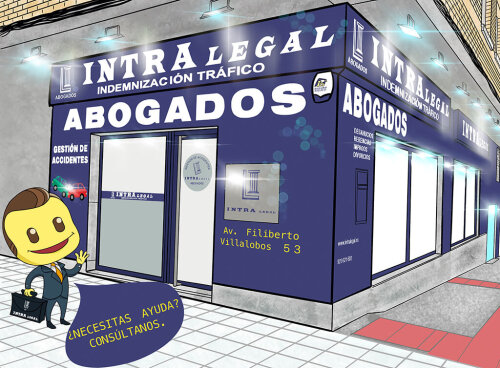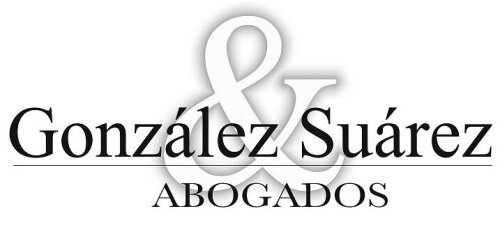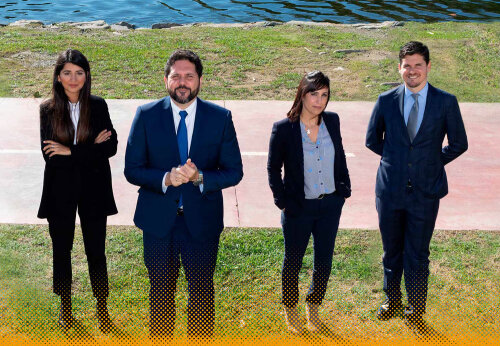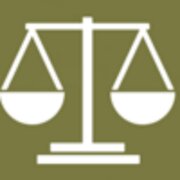Best Accidents & Injuries Lawyers in Spain
Share your needs with us, get contacted by law firms.
Free. Takes 2 min.
Or refine your search by selecting a city:
List of the best lawyers in Spain
About Accidents & Injuries Law in Spain
Accidents & Injuries Law in Spain encompasses a range of legal areas focused on compensating individuals who have been harmed due to the negligence or wrongful acts of others. It includes cases related to traffic accidents, workplace injuries, medical malpractice, and public liability incidents. The primary objective of this legal framework is to ensure that victims receive fair compensation for injuries suffered, covering aspects like medical costs, lost income, and pain and suffering. The Spanish legal system follows a civil law tradition, which heavily relies on codified statutes and regulations.
Why You May Need a Lawyer
There are numerous situations where individuals may require legal help for accidents and injuries in Spain:
- Traffic Accidents: If you are involved in a vehicle collision and need assistance with claiming compensation for damages or injuries.
- Workplace Injuries: In cases where injuries occur at the workplace, understanding workers' compensation rights is critical.
- Medical Malpractice: When medical care falls below acceptable standards, resulting in harm or injury.
- Public Liability: Instances where injuries are caused by unsafe conditions in public spaces or businesses.
- Insurance Disputes: Handling conflicts with insurance companies regarding claim settlements.
Local Laws Overview
Spain’s legal framework for accidents and injuries is largely informed by the Civil Code, Law on Civil Liability and Insurance, and specific laws relating to health and safety. Key aspects include:
- Civil Liability: Establishes responsibility for compensation personal injuries and property damage.
- Obligatory Insurance: All vehicle owners must have liability insurance to cover damages caused to third parties.
- Statute of Limitations: Generally, claims must be filed within one year of the incident.
- Workers' Compensation: Employers are required to insure employees against workplace injuries, with benefits managed through collaborative insurance entities.
- No Fault Basis: In vehicular cases, initial coverage can often be accessed on a no-fault basis, focusing on rehabilitation before establishing blame.
Frequently Asked Questions
What should I do immediately after being involved in an accident in Spain?
Ensure safety first and seek medical attention. Report the incident to the police if necessary, gather evidence such as photos and witness information, and contact your insurance provider.
Is there a time limit to file a personal injury claim in Spain?
Yes, typically, you have one year from the date of the accident to file a personal injury claim, but it is advisable to seek legal counsel promptly.
How is compensation determined in a personal injury case?
Compensation may cover medical expenses, loss of income, and non-economic damages like pain and suffering. Factors include the severity of injury, impact on quality of life, and financial losses.
Can I claim if the accident was partly my fault?
Yes, Spain's legal system allows for contributory negligence. Compensation may be reduced proportionately to the extent of your fault.
Do I need a lawyer to handle my insurance claim?
While not mandatory, having a lawyer can be beneficial for navigating complex legal and insurance processes, and ensuring fair compensation.
What if the party at fault is uninsured?
You may still pursue compensation through the Consorcio de Compensación de Seguros, a government body managing such claims.
How long do injury claims usually take?
The duration varies based on complexity, but most cases settle within 6-18 months. Complex cases may take longer.
How are medical malpractice cases reviewed by the courts?
Courts assess the standard of care provided relative to accepted medical practices, often relying on expert witness testimony.
Is mediation allowed for accident and injury disputes?
Yes, mediation is encouraged as a first step in conflict resolution before proceeding to court, especially in minor injury cases.
What role do expert witnesses play in accident and injury cases?
Expert witnesses provide crucial testimony on technical aspects of injury or negligence, such as medical condition assessments or accident reconstruction.
Additional Resources
Consider reaching out to the following resources for more information or assistance:
- Dirección General de Tráfico (DGT): Offers guidelines and information related to traffic accidents.
- Consorcio de Compensación de Seguros: A public entity that handles claims involving uninsured vehicles or catastrophic events.
- Ministerio de Sanidad: Provides resources on medical standards and malpractice inquiries.
- Local Bar Associations: These organizations list licensed lawyers specializing in personal injury law.
- Trade Unions: Often provide support and advice for workplace injuries and compensation claims.
Next Steps
If you require legal assistance in accidents and injuries, consider the following steps:
- Consultation: Schedule a consultation with a specialized personal injury lawyer to discuss your case.
- Documentation: Gather all relevant documentation, including medical records, police reports, and witness information.
- Insurance Claim: Contact your insurance provider to report the incident and initiate the claims process.
- Mediation: Consider trying mediation as a resolution method before proceeding to litigation.
- Legal Action: If necessary, your lawyer will file a formal claim or lawsuit to pursue fair compensation.
Taking timely action and seeking legal support can significantly influence the outcome of your case, ensuring that your rights and interests are protected.
Lawzana helps you find the best lawyers and law firms in Spain through a curated and pre-screened list of qualified legal professionals. Our platform offers rankings and detailed profiles of attorneys and law firms, allowing you to compare based on practice areas, including Accidents & Injuries, experience, and client feedback.
Each profile includes a description of the firm's areas of practice, client reviews, team members and partners, year of establishment, spoken languages, office locations, contact information, social media presence, and any published articles or resources. Most firms on our platform speak English and are experienced in both local and international legal matters.
Get a quote from top-rated law firms in Spain — quickly, securely, and without unnecessary hassle.
Disclaimer:
The information provided on this page is for general informational purposes only and does not constitute legal advice. While we strive to ensure the accuracy and relevance of the content, legal information may change over time, and interpretations of the law can vary. You should always consult with a qualified legal professional for advice specific to your situation.
We disclaim all liability for actions taken or not taken based on the content of this page. If you believe any information is incorrect or outdated, please contact us, and we will review and update it where appropriate.
Browse accidents & injuries law firms by service in Spain
Spain Attorneys in related practice areas.
Browse accidents & injuries law firms by city in Spain
Refine your search by selecting a city.















